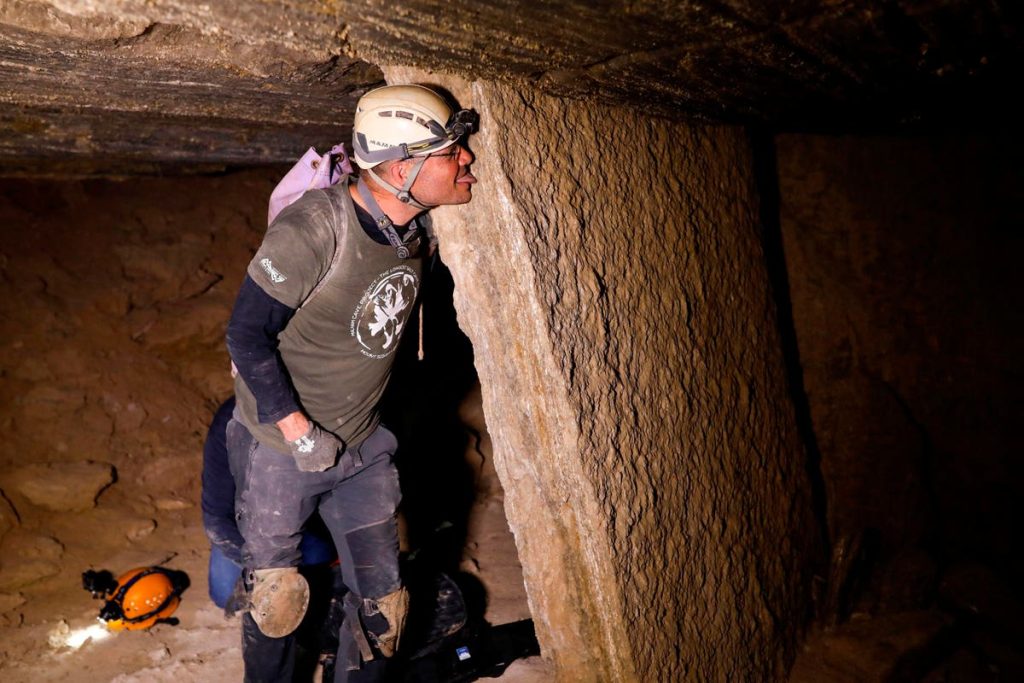British-Polish geologist Jan Zalasiewicz won the Ig Noble Prize in the category “Geology & Chemistry” for his 2017 essay on why geologists love to lick rocks.
Due to the coronavirus lockdown and its aftermath, it was not possible to attend the traditional ceremony at the Sanders Theater at Harvard University. Still, the jury and the winners—coming from the U.S., Spain, Switzerland, Canada, Vietnam, France, the U.K., South Korea, India, China, Malaysia and Iran—met online.
The Ig Noble Prize honors research “that makes people laugh, then think.” This year’s (un)fortunate winners include a team who revived dead spiders as bionic gripping tools, the inventor of the “Stanford toilet” who uses a sensor similar to fingerprint ID to check the health of a person’s anus and researchers who modeled if ocean-water mixing is affected by the sexual activity of anchovies (or animals in general, a still neglected effect in many oceanographic studies).
“Licking the rock, of course, is part of the geologist’s and paleontologist’s armory of tried-and-much-tested techniques used to help survive in the field,” writes Zalasiewicz in his winning essay.
The first field guides, dating to the late 18th century, included description of taste to help identify a mineral. Minerals can be tasteless, sweet, salty, bitter, dusty or musty.
Italian mining engineer and scholar Giovanni Arduino (1714–1795) describes how a mudrock collected in the Dolomites revealed “a flavor equally bitter and urinous; when spat out, it leaves a certain sweetness, and a skinned tongue”—likely a result of traces of coal and sulfur minerals found in this sedimentary rock.
In a time when chemical equipment was hard to come by, especially small enough to be used in the field or in a mine, and little was known about the chemical properties of rocks, the human tongue with its receptors for molecules was a quite useful tool to “throw a little light on those enigmatic but useful rocks,” so Zalasiewicz.
Today tasting minerals is an almost lost art, as some crystalline compounds can cause stomach problems (or even be deadly), and accurate analytical instruments can fit in the palm of a hand.
But the most important reason geologists still love to lick rocks (using just tap water also works) is to reveal their texture (the mutual relationship and packing arrangement of different minerals or other components making up the rock) and structure (the size and shape of different minerals or other components making up the rock). Texture and structure, collectively referred to as fabric, are the very basics of rock classification.
“Wetting the surface allows fossil and mineral textures to stand out sharply, rather than being lost in the blur of intersecting micro-reflections and micro-refractions that come out of a dry surface,” concludes Zalasiewicz.
The tongue, being a muscle with many nervous terminations, is also able to distinguish between finer grain sizes, like silt and clay.
Maybe one day AI and image recognition software will be able to identify rocks and minerals, but until then some geological knowledge, a keen eye and licking rocks remains a simple, cheap and effective method.
Zalasiewicz, now emeritus professor at the University of Leicester known for his popular geology books and work on defining the Anthropocene era, said he was honored to become an Ig Nobel laureate because the prizes “have become one of the grand traditions of science.”
Read the full article here






